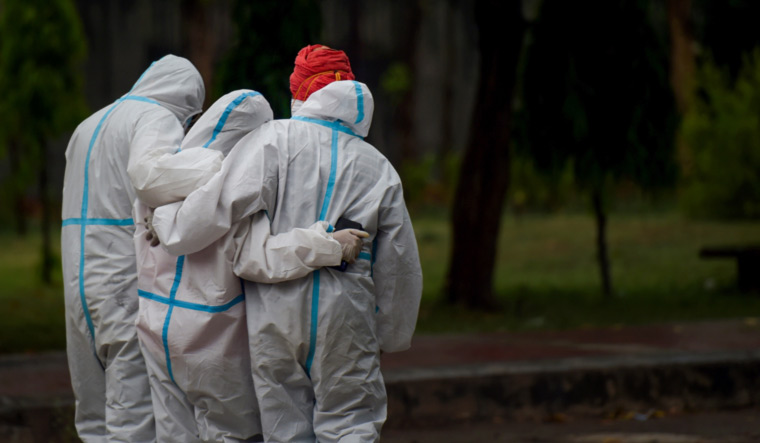Last year we left our protagonists, the entire population of planet Earth, cornered by a new coronavirus . They seemed on the verge of being defeated by the Covid-19 pandemic when the first vaccines arrived.
Just as 2020 was ending, the first doses began to be injected into the arms of some lucky ones. Was this the beginning of the end?
This year we learned that Covid-19 is more than a pandemic: it is also a syndemic. The researcher from the University of Las Palmas de Gran Canaria Mara Teresa Tejedor explained the concept to us .
The situation we are experiencing goes beyond the coronavirus itself, which is intertwined with social, economic, political, labor and even ecological issues. Only by tackling its ultimate causes can we alleviate the effects of the crisis. Age and hypertension are risk factors for biological reasons. Poverty and race are for other reasons.
We also understood how long a pandemic can (and can) be. This is not a hundred meter sprint, but a marathon. Indirectly, SARS-CoV-2 attacks our mental health and personal relationships. Pandemic fatigue is a concept whose scope we are only beginning to understand today.
Several researchers gave us a recipe to combat it without lowering our guard that half a year later is still very much in force. One of the keys: to point out everything we have achieved as a society so far, more than specific breaches.
"Individual responsibility" is another of the most repeated phrases of the pandemic. If in 2020 we thought that this was a fundamental key in the fight against the virus, this year we realized that it was only the tip of the iceberg. Without taking weight off the necessary citizen collaboration, FISABIO researcher Salvador Peir told us why infectious diseases are a collective problem that depends on public health actions . These, he recalled in July, do not consist of replacing the masks in the open air.
We have been extremely lucky that Covid-19 does not strike the little ones, whose pictures tend to be mild and even asymptomatic. But this does not mean that they have emerged unscathed from the pandemic.
The management of this crisis has had hidden costs that the sociologist of the University of Huelva Ivn Rodrguez enumerated in an article.
Treating children as vectors has been, in his opinion, a kind of social injustice in which the interests of infants and adolescents have been almost completely ignored while those of adults were prioritized.
But this year has been, above all, the year of vaccines. With them millions of deaths have been avoided and the scene has been completely changed. However, despite their safety and efficacy, with them came the hoaxes. A group of researchers led by the virologist from King's College London Jos Manuel Jimnez gave us a guide to disprove 24 of the most frequent hoaxes in the first months of a vaccination campaign that today we know was a historic success.





